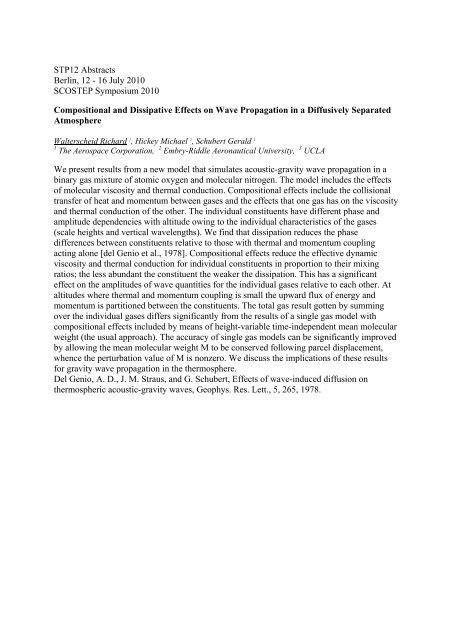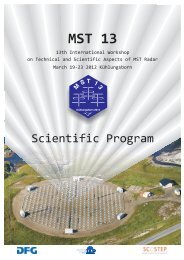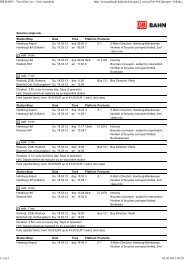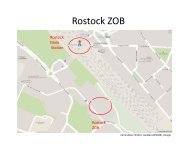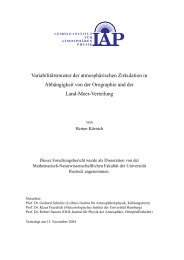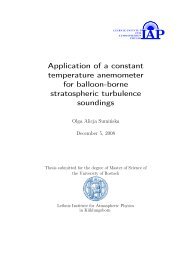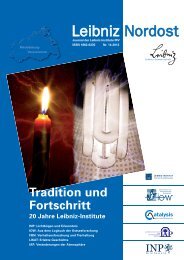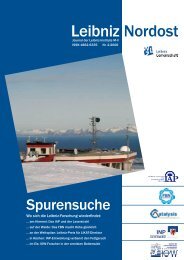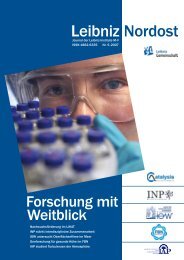- Page 1 and 2:
SCOSTEP 2010 (STP12) Berlin, 12 - 1
- Page 3 and 4:
STP12 Abstracts Berlin, 12 - 16 Jul
- Page 5 and 6:
STP12 Abstracts Berlin, 12 - 16 Jul
- Page 7 and 8:
STP12 Abstracts Berlin, 12 - 16 Jul
- Page 9 and 10:
STP12 Abstracts Berlin, 12 - 16 Jul
- Page 11 and 12:
STP12 Abstracts Berlin, 12 - 16 Jul
- Page 13 and 14:
STP12 Abstracts Berlin, 12 - 16 Jul
- Page 15 and 16:
STP12 Abstracts Berlin, 12 - 16 Jul
- Page 17 and 18:
STP12 Abstracts Berlin, 12 - 16 Jul
- Page 19 and 20:
STP12 Abstracts Berlin, 12 - 16 Jul
- Page 21 and 22:
STP12 Abstracts Berlin, 12 - 16 Jul
- Page 23 and 24:
STP12 Abstracts Berlin, 12 - 16 Jul
- Page 25 and 26:
STP12 Abstracts Berlin, 12 - 16 Jul
- Page 27 and 28:
STP12 Abstracts Berlin, 12 - 16 Jul
- Page 29 and 30:
STP12 Abstracts Berlin, 12 - 16 Jul
- Page 31 and 32:
STP12 Abstracts Berlin, 12 - 16 Jul
- Page 33 and 34:
STP12 Abstracts Berlin, 12 - 16 Jul
- Page 35 and 36:
STP12 Abstracts Berlin, 12 - 16 Jul
- Page 37 and 38:
STP12 Abstracts Berlin, 12 - 16 Jul
- Page 39 and 40:
STP12 Abstracts Berlin, 12 - 16 Jul
- Page 41 and 42:
STP12 Abstracts Berlin, 12 - 16 Jul
- Page 43 and 44:
STP12 Abstracts Berlin, 12 - 16 Jul
- Page 45 and 46:
STP12 Abstracts Berlin, 12 - 16 Jul
- Page 47 and 48:
STP12 Abstracts Berlin, 12 - 16 Jul
- Page 49 and 50:
STP12 Abstracts Berlin, 12 - 16 Jul
- Page 51 and 52:
STP12 Abstracts Berlin, 12 - 16 Jul
- Page 53 and 54:
STP12 Abstracts Berlin, 12 - 16 Jul
- Page 55 and 56:
STP12 Abstracts Berlin, 12 - 16 Jul
- Page 57 and 58:
STP12 Abstracts Berlin, 12 - 16 Jul
- Page 59 and 60:
STP12 Abstracts Berlin, 12 - 16 Jul
- Page 61 and 62:
STP12 Abstracts Berlin, 12 - 16 Jul
- Page 63 and 64:
STP12 Abstracts Berlin, 12 - 16 Jul
- Page 65 and 66:
STP12 Abstracts Berlin, 12 - 16 Jul
- Page 67 and 68:
STP12 Abstracts Berlin, 12 - 16 Jul
- Page 69 and 70:
STP12 Abstracts Berlin, 12 - 16 Jul
- Page 71 and 72:
STP12 Abstracts Berlin, 12 - 16 Jul
- Page 73 and 74:
STP12 Abstracts Berlin, 12 - 16 Jul
- Page 75 and 76:
STP12 Abstracts Berlin, 12 - 16 Jul
- Page 77 and 78:
STP12 Abstracts Berlin, 12 - 16 Jul
- Page 79 and 80:
STP12 Abstracts Berlin, 12 - 16 Jul
- Page 81 and 82:
STP12 Abstracts Berlin, 12 - 16 Jul
- Page 83 and 84:
STP12 Abstracts Berlin, 12 - 16 Jul
- Page 85 and 86:
STP12 Abstracts Berlin, 12 - 16 Jul
- Page 87 and 88:
STP12 Abstracts Berlin, 12 - 16 Jul
- Page 89 and 90:
STP12 Abstracts Berlin, 12 - 16 Jul
- Page 91 and 92:
STP12 Abstracts Berlin, 12 - 16 Jul
- Page 93 and 94:
STP12 Abstracts Berlin, 12 - 16 Jul
- Page 95 and 96:
STP12 Abstracts Berlin, 12 - 16 Jul
- Page 97 and 98:
STP12 Abstracts Berlin, 12 - 16 Jul
- Page 99 and 100:
STP12 Abstracts Berlin, 12 - 16 Jul
- Page 101 and 102:
STP12 Abstracts Berlin, 12 - 16 Jul
- Page 103 and 104:
STP12 Abstracts Berlin, 12 - 16 Jul
- Page 105 and 106:
STP12 Abstracts Berlin, 12 - 16 Jul
- Page 107 and 108:
STP12 Abstracts Berlin, 12 - 16 Jul
- Page 109 and 110:
STP12 Abstracts Berlin, 12 - 16 Jul
- Page 111 and 112:
STP12 Abstracts Berlin, 12 - 16 Jul
- Page 113 and 114:
STP12 Abstracts Berlin, 12 - 16 Jul
- Page 115 and 116:
STP12 Abstracts Berlin, 12 - 16 Jul
- Page 117 and 118:
STP12 Abstracts Berlin, 12 - 16 Jul
- Page 119 and 120:
STP12 Abstracts Berlin, 12 - 16 Jul
- Page 121 and 122:
STP12 Abstracts Berlin, 12 - 16 Jul
- Page 123 and 124:
STP12 Abstracts Berlin, 12 - 16 Jul
- Page 125 and 126:
STP12 Abstracts Berlin, 12 - 16 Jul
- Page 127 and 128:
STP12 Abstracts Berlin, 12 - 16 Jul
- Page 129 and 130:
STP12 Abstracts Berlin, 12 - 16 Jul
- Page 131 and 132:
STP12 Abstracts Berlin, 12 - 16 Jul
- Page 133 and 134:
STP12 Abstracts Berlin, 12 - 16 Jul
- Page 135 and 136:
STP12 Abstracts Berlin, 12 - 16 Jul
- Page 137 and 138:
STP12 Abstracts Berlin, 12 - 16 Jul
- Page 139 and 140:
STP12 Abstracts Berlin, 12 - 16 Jul
- Page 141 and 142:
STP12 Abstracts Berlin, 12 - 16 Jul
- Page 143 and 144:
STP12 Abstracts Berlin, 12 - 16 Jul
- Page 145 and 146:
STP12 Abstracts Berlin, 12 - 16 Jul
- Page 147 and 148:
STP12 Abstracts Berlin, 12 - 16 Jul
- Page 149 and 150:
STP12 Abstracts Berlin, 12 - 16 Jul
- Page 151 and 152:
STP12 Abstracts Berlin, 12 - 16 Jul
- Page 153 and 154:
STP12 Abstracts Berlin, 12 - 16 Jul
- Page 155 and 156:
STP12 Abstracts Berlin, 12 - 16 Jul
- Page 157 and 158:
STP12 Abstracts Berlin, 12 - 16 Jul
- Page 159 and 160:
STP12 Abstracts Berlin, 12 - 16 Jul
- Page 161 and 162:
STP12 Abstracts Berlin, 12 - 16 Jul
- Page 163 and 164:
STP12 Abstracts Berlin, 12 - 16 Jul
- Page 165 and 166:
STP12 Abstracts Berlin, 12 - 16 Jul
- Page 167 and 168:
STP12 Abstracts Berlin, 12 - 16 Jul
- Page 169 and 170:
STP12 Abstracts Berlin, 12 - 16 Jul
- Page 171 and 172:
STP12 Abstracts Berlin, 12 - 16 Jul
- Page 173 and 174:
STP12 Abstracts Berlin, 12 - 16 Jul
- Page 175 and 176:
STP12 Abstracts Berlin, 12 - 16 Jul
- Page 177 and 178:
STP12 Abstracts Berlin, 12 - 16 Jul
- Page 179 and 180:
STP12 Abstracts Berlin, 12 - 16 Jul
- Page 181 and 182:
STP12 Abstracts Berlin, 12 - 16 Jul
- Page 183 and 184:
STP12 Abstracts Berlin, 12 - 16 Jul
- Page 185 and 186:
STP12 Abstracts Berlin, 12 - 16 Jul
- Page 187 and 188:
STP12 Abstracts Berlin, 12 - 16 Jul
- Page 189 and 190:
STP12 Abstracts Berlin, 12 - 16 Jul
- Page 191 and 192:
STP12 Abstracts Berlin, 12 - 16 Jul
- Page 193 and 194:
STP12 Abstracts Berlin, 12 - 16 Jul
- Page 195 and 196:
STP12 Abstracts Berlin, 12 - 16 Jul
- Page 197 and 198:
STP12 Abstracts Berlin, 12 - 16 Jul
- Page 199 and 200: STP12 Abstracts Berlin, 12 - 16 Jul
- Page 201 and 202: STP12 Abstracts Berlin, 12 - 16 Jul
- Page 203 and 204: STP12 Abstracts Berlin, 12 - 16 Jul
- Page 205 and 206: STP12 Abstracts Berlin, 12 - 16 Jul
- Page 207 and 208: STP12 Abstracts Berlin, 12 - 16 Jul
- Page 209 and 210: STP12 Abstracts Berlin, 12 - 16 Jul
- Page 211 and 212: STP12 Abstracts Berlin, 12 - 16 Jul
- Page 213 and 214: STP12 Abstracts Berlin, 12 - 16 Jul
- Page 215 and 216: STP12 Abstracts Berlin, 12 - 16 Jul
- Page 217 and 218: STP12 Abstracts Berlin, 12 - 16 Jul
- Page 219 and 220: STP12 Abstracts Berlin, 12 - 16 Jul
- Page 221 and 222: STP12 Abstracts Berlin, 12 - 16 Jul
- Page 223 and 224: STP12 Abstracts Berlin, 12 - 16 Jul
- Page 225 and 226: STP12 Abstracts Berlin, 12 - 16 Jul
- Page 227 and 228: STP12 Abstracts Berlin, 12 - 16 Jul
- Page 229 and 230: STP12 Abstracts Berlin, 12 - 16 Jul
- Page 231 and 232: STP12 Abstracts Berlin, 12 - 16 Jul
- Page 233 and 234: STP12 Abstracts Berlin, 12 - 16 Jul
- Page 235 and 236: STP12 Abstracts Berlin, 12 - 16 Jul
- Page 237 and 238: STP12 Abstracts Berlin, 12 - 16 Jul
- Page 239 and 240: STP12 Abstracts Berlin, 12 - 16 Jul
- Page 241 and 242: STP12 Abstracts Berlin, 12 - 16 Jul
- Page 243 and 244: STP12 Abstracts Berlin, 12 - 16 Jul
- Page 245 and 246: STP12 Abstracts Berlin, 12 - 16 Jul
- Page 247 and 248: STP12 Abstracts Berlin, 12 - 16 Jul
- Page 249: STP12 Abstracts Berlin, 12 - 16 Jul
- Page 253 and 254: STP12 Abstracts Berlin, 12 - 16 Jul
- Page 255 and 256: STP12 Abstracts Berlin, 12 - 16 Jul
- Page 257 and 258: STP12 Abstracts Berlin, 12 - 16 Jul
- Page 259 and 260: STP12 Abstracts Berlin, 12 - 16 Jul
- Page 261 and 262: STP12 Abstracts Berlin, 12 - 16 Jul
- Page 263 and 264: STP12 Abstracts Berlin, 12 - 16 Jul
- Page 265 and 266: STP12 Abstracts Berlin, 12 - 16 Jul
- Page 267 and 268: STP12 Abstracts Berlin, 12 - 16 Jul


